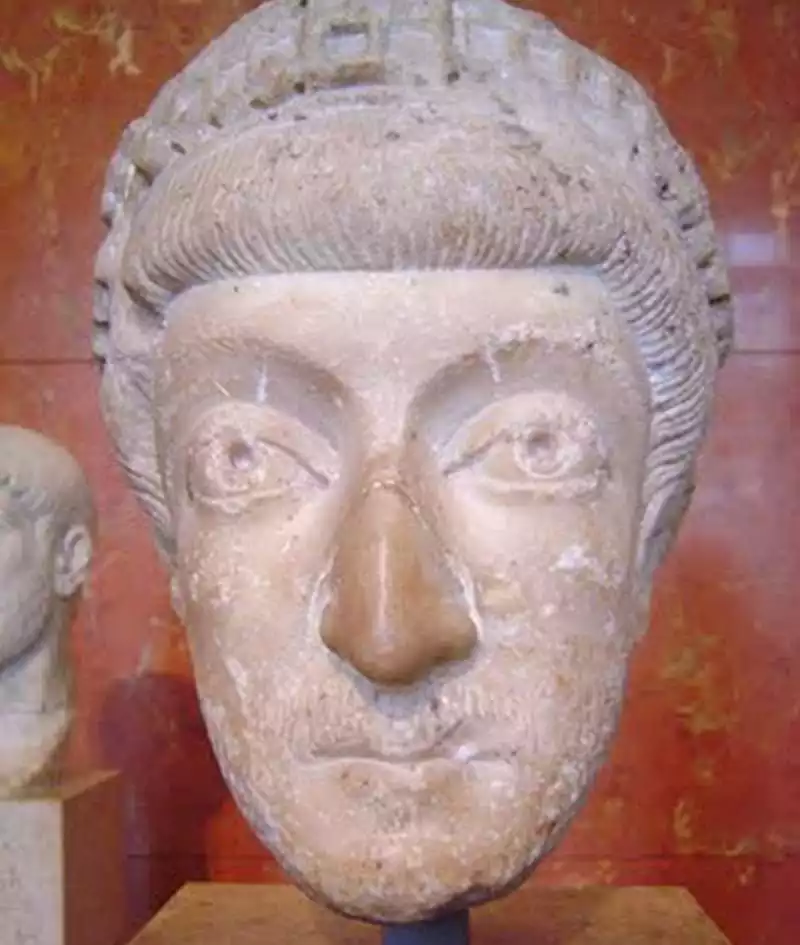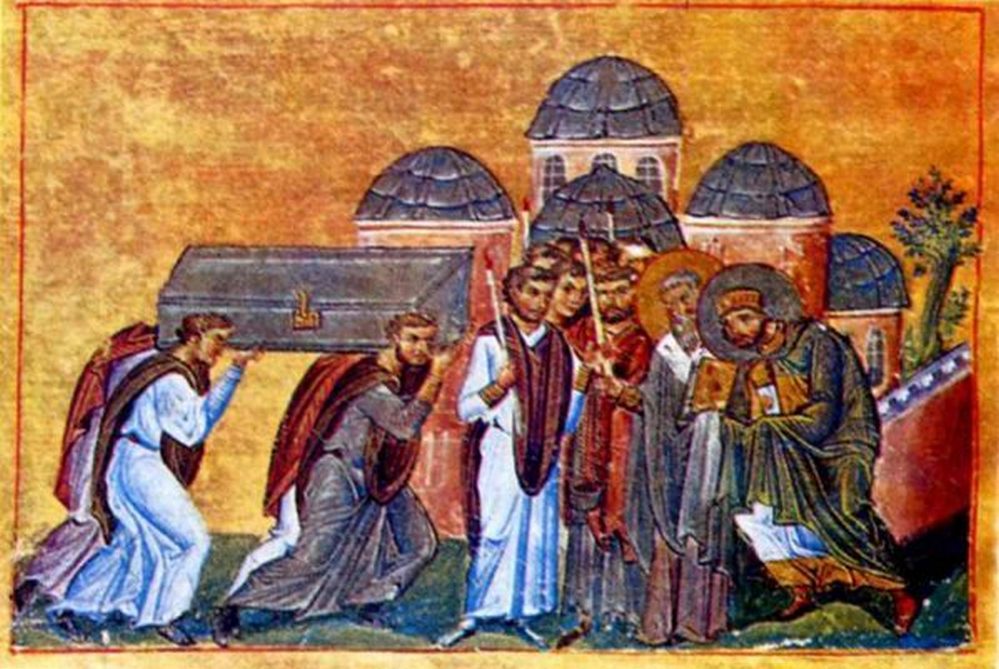
Saint Emperor Theodosius II, born on April 10, 401, and passing on July 28, 450, stands as a pivotal figure in the history of the Byzantine Empire. Renowned for his significant legal and educational reforms, Theodosius II’s reign marked a period of substantial development in the Byzantine legal system, as well as in the realm of higher education. His contributions have had a lasting impact on the structure and evolution of Byzantine society.
Legal Reforms of Theodosius II
Emperor Theodosius II’s tenure was distinguished by profound legal reforms, reshaping the Byzantine legal landscape. In 429, he commissioned a team of jurists to streamline and codify existing Roman laws, an endeavor culminating in the Codex Theodosianus, a comprehensive legal code enacted in 438. This monumental work systematically compiled and rationalized centuries of Roman statutes, edicts, and legal principles, thereby providing clarity and consistency to Byzantine law.
The Codex Theodosianus, a cornerstone of Theodosius II’s legal reforms, significantly influenced both Eastern and Western Roman Empires. It not only streamlined legal proceedings but also provided a structured legal framework that endured well beyond his reign. These reforms reflected Theodosius II’s commitment to legal order and governance, profoundly impacting the administration of justice in the empire.
Theodosius II’s legal reforms extended beyond the Codex. He also instituted several other legal edicts and policies, aimed at refining the judicial system and ensuring equitable justice. These policies addressed various aspects of civil and criminal law, highlighting his dedication to maintaining a balanced and fair legal system within the empire.
Educational Initiatives of Theodosius II
In addition to his legal reforms, Theodosius II was a patron of education and learning, significantly contributing to the intellectual life of the Byzantine Empire. His reign saw the establishment of the University of Constantinople in 425, a major educational institution that played a key role in the preservation and dissemination of classical knowledge and learning.
The University of Constantinople, under Theodosius II’s patronage, became a center for higher education and intellectual discourse. It attracted scholars and students from across the empire, offering courses in various fields such as philosophy, medicine, law, and rhetoric. Theodosius II’s support for this institution underscored his commitment to fostering a learned and educated society.
Moreover, Theodosius II’s educational initiatives extended to the promotion of literary and scholarly activities. He encouraged the production and preservation of manuscripts, thus contributing to the rich literary heritage of the Byzantine Empire. His reign was marked by a flourishing of intellectual and cultural activities, reflecting his deep interest in nurturing the empire’s intellectual capital.
These educational efforts, alongside his legal reforms, underscored Theodosius II’s vision of a well-ordered and enlightened society. His contributions to education and scholarship had a lasting impact, shaping the intellectual landscape of the Byzantine Empire for generations.
Foreign Policy and Military Campaigns
Under Theodosius II, the Byzantine Empire experienced a period of relative peace and stability, primarily due to his diplomatic and defensive strategies. His reign was characterized by a focus on fortifying the empire’s boundaries, notably through the construction of the Theodosian Walls of Constantinople. Completed in 413, these formidable defenses were a testament to his commitment to safeguarding the capital and have since been lauded as a marvel of military architecture.
Theodosius II’s foreign policy was marked by diplomatic relations with neighboring powers, including the Huns and the Sassanid Empire. He maintained a complex network of alliances and treaties, which helped to keep the empire relatively free from major military conflicts. This approach demonstrated his preference for diplomacy over direct military confrontation.
Religious Policies and Church Affairs
Theodosius II also played a significant role in the religious landscape of the Byzantine Empire. His reign witnessed the convening of the Third Ecumenical Council at Ephesus in 431, which was instrumental in addressing the Nestorian controversy. This council, under his auspices, affirmed the doctrine of the Theotokos, further shaping the theological and doctrinal direction of the Orthodox Church.
Additionally, Theodosius II issued various edicts that influenced the religious life of the empire. His policies often favored the Orthodox Christian doctrine, reflecting his own convictions and the prevailing religious sentiments of the time. These actions, however, also led to certain tensions with different religious communities within the empire.
Emperor Theodosius II’s reign was marked by significant legal, educational, diplomatic, and religious contributions, shaping the Byzantine Empire’s trajectory. His legal reforms, epitomized by the Codex Theodosianus, brought clarity and order to Byzantine law. His establishment of the University of Constantinople fostered intellectual growth, while his diplomatic and military strategies ensured the empire’s stability and security. Moreover, his involvement in religious affairs had a lasting impact on Byzantine Christianity. Theodosius II’s legacy is a testament to his multifaceted approach to governance, underlining his role as a key figure in Byzantine history.
Feast Day: July 29
References
- Bury, J.B. “History of the Later Roman Empire.” Macmillan, 1923.
- Cameron, Averil. “The Cambridge Ancient History – Late Antiquity: Empire and Successors.” Cambridge University Press, 2000.
- Bryn Mawr Classical Review. Accessed December 23, 2023.
- Holmes, Richard. “Ancestry of Theodosius II.” Rensselaer Polytechnic Institute. Accessed December 23, 2023.
- JSTOR. Accessed December 23, 2023.
- Kazhdan, Alexander, ed. “The Oxford Dictionary of Byzantium.” Oxford University Press, 1991.

